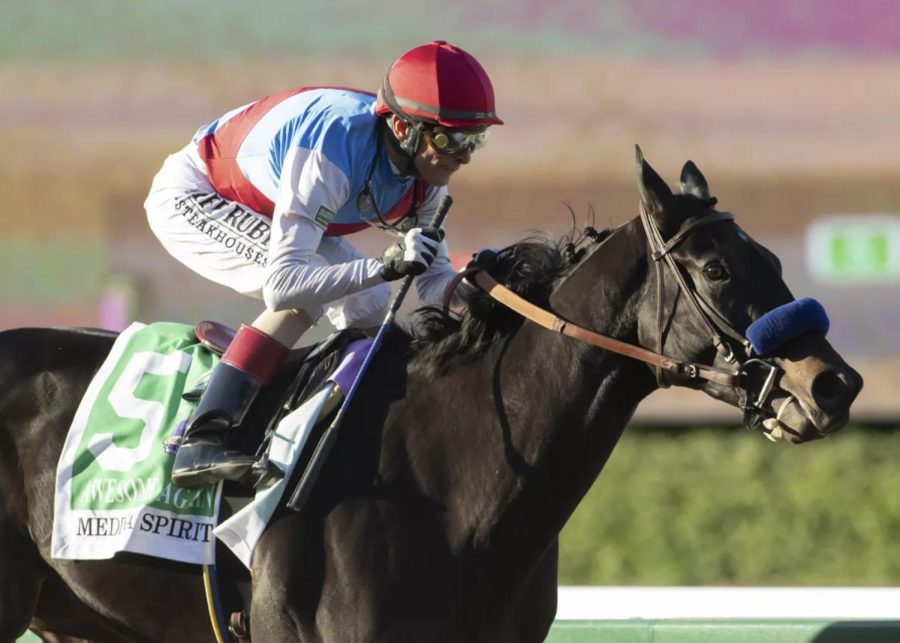The Dark Side of Animal-Based Sports
In the first weeks of May, the Kentucky Derby and Westminster Dog Show hosted their annual events. The derby boasted 20 competing horses which raced around the one-and-a-quarter mile track at Churchill Downs. Across the Atlantic Ocean, the Westminster Dog Show featured over 3,000 dogs flaunting their best tricks, all hoping to win in various awards, including the coveted “best in show.” Both of these events attract immense crowds and garner high television ratings each year.
In the past decade, however, these events have resulted in numerous controversies and debates as spectators question their less glamorous aspects. Since both of these events are centered around animals, there has been a renewed emphasis on humane animal treatment and backlash when ethical standards are not met.
In this year’s Kentucky Derby, three-year-old Mage, trained by Gustavo Delgado and ridden by Hall-of-Fame horse jockey Javier Castellano, was crowned champion with 16-1 odds, finishing the race in 2:01.57. The three-year-old horse’s win thrilled the crowd immensely. An individual who put down two dollars had a 32 dollars and 42 cents payoff.
Equestrian Sarah Lynch (II) watches the Kentucky Derby every year with her friends, and became curious about what goes on behind the scenes. She quickly found many stories “about the mistreatment of the horses in it and the injuries they sustained” and “began to think more about the nature of the race itself and if it was ethical to watch.”
This March, trainer Dale Romans, whose three-year-old colt was injured on the track at Churchill Downs and later euthanized after sustaining a leg injury, explains,“It hits you bad every time it happens, we own these race horses, [and] they give us so much pleasure. We owe it to them to do whatever we can to make sure they don’t break down, to make sure that it’s as small a percentage as possible.”
The drugging of horses has also emerged as an issue, causing increasing problems for racers. One of most well-known trainers in horse racing history, Bob Baffert, is currently finishing the second year of his two year suspension after one of his horses, Medina Spirit, was disqualified after testing positive for betamethasone, an anti-inflammatory steroid. Following the criminalizing discovery, he denied all allegations, expressing, “We live and work in a fishbowl, with rumors and accusations flowing constantly.” The horse, at only three years old, died months later. In spite of this incident, however, Lynch decided to continue watching the Derby to “support the good riders that take care of their horses despite the bad ones.”
Across the world, the Westminster Dog Show is not immune to criticism either. The ethics of dog breeding continue to be the focal point of discussion each year because breeding dogs for certain qualities can put animals’ health at risk. The breeding of pugs for a flat face, for example, causes a multitude of respiratory problems for the dogs, yet the show encourages this problem by rating pugs with flat faces higher, valuing the aesthetics of the animals over their health. Ultimately, the number of dogs with this feature increases as demands increase for offspring from winners. The shows set a dangerous precedent by choosing to overlook the health implications of their judging criteria.
This year, Buddy Holly, a petite basset griffon vendéen, took home best in show, much to the delight of Buddy’s owner and trainer Janice Hayes. In an interview with the New York Times, Hayes remarks, “ I have dreamed of this since [she] was nine years old.” She believes Buddy is “the epitome of a show dog; nothing bothers him” and is overjoyed with the win. This is her third Westminster show and her first win in any category.
Although there will always be controversy surrounding sports, especially those involving animals, there will always be people who are well-intentioned and simply want to compete. As long as the crowds continue to watch, these sports will continue to be played.






